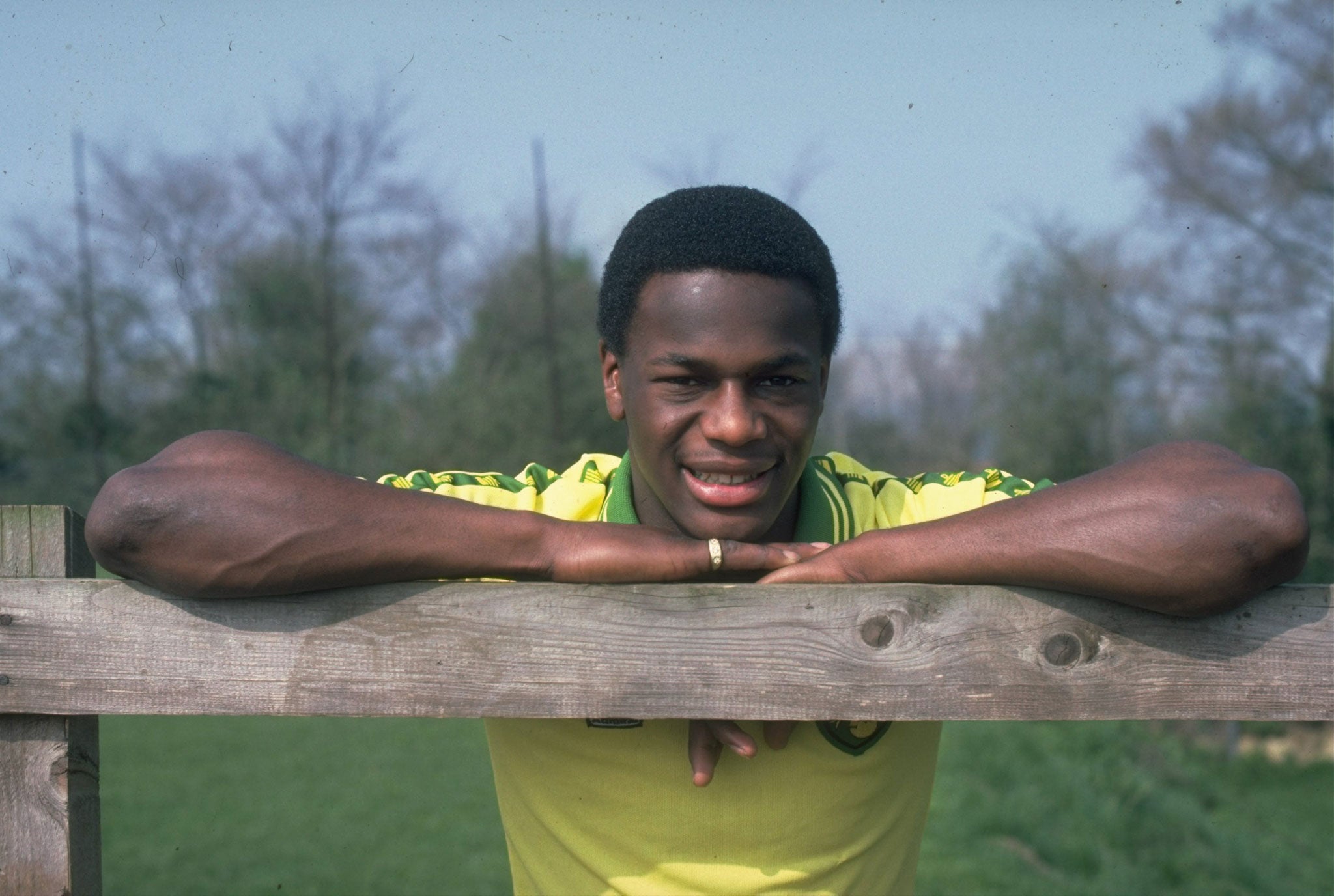Remembering Justin Fashanu a different way, 15 years after his death
Complexity has been ironed out from the footballer's legacy

Your support helps us to tell the story
From reproductive rights to climate change to Big Tech, The Independent is on the ground when the story is developing. Whether it's investigating the financials of Elon Musk's pro-Trump PAC or producing our latest documentary, 'The A Word', which shines a light on the American women fighting for reproductive rights, we know how important it is to parse out the facts from the messaging.
At such a critical moment in US history, we need reporters on the ground. Your donation allows us to keep sending journalists to speak to both sides of the story.
The Independent is trusted by Americans across the entire political spectrum. And unlike many other quality news outlets, we choose not to lock Americans out of our reporting and analysis with paywalls. We believe quality journalism should be available to everyone, paid for by those who can afford it.
Your support makes all the difference.When Justin Fashanu is remembered, it's as a tragic, allegorical figure. He's held up as concrete proof of the frustrating, still prevalent equation that 'homosexuality + football = danger'. To graceless members of the press/gay community/world of sport, he's 'the gay footballer who killed himself'. It pains me to admit it, but I've probably referred to him as such myself – and in writing this to mark the 15-year anniversary of his suicide at the age of 37, I know there's a possibility of my reducing his legacy as such once again.
However, this is a grossly shortsighted evaluation. Justin Fashanu was first and foremost a great talent: a rapidly rising star in football at Norwich City in the late 70s and early 80s, he became Britain's first £1million black footballer upon signing to Nottingham Forest in 1981. Equally if not more impressive was his coming out as gay in an interview with a tabloid newspaper in 1990, becoming the first professional football player to do so.
Forgive me for pointing out the bleeding obvious, but what an unfathomably brave, amazing thing to do. Perhaps that's my own brand of simplification talking, or my age: like many people engaged in the debate surrounding today's closeted gay sports stars (while we're on the subject, big props to Jason Collins, who became the first NBA basketball star to come out only this week), I was blissfully ignorant to Fashanu's existence while he was alive, which makes my remembering him immediately problematic. Or perhaps it's simply the benefit of hindsight. Even after 23 years, nobody in Fashanu's position has had the guts to do what he did.
So why is he so seldom celebrated? My theory: the vitriolic blaze of negative and often antigay publicity that followed – that pervaded the rest of his life, preying on his alleged 'attention-seeking' tendencies and later career disappointments – has informed most people's recollections of him. If he were alive in today's friendlier LGBT climate he'd be iconised; instead, his sporting achievements are reduced to mere footnotes and his coming out directly linked to his decision to end his life – even though that came eight years later; in truth, nobody has the right to make such an assessment.
The possibility that Fashanu was actually happy in his gay identity (as suggested in this 1994 Independent profile of him) is rarely conceded. Furthermore, when I interviewed Fashanu's niece Amal for Gay Times magazine recently, she raised questions about people's assumptions that her uncle's death and sexuality are inherently linked, pointing out the infinite, incomprehensible reasoning behind such a grave decision. “People think it's related to him being gay, but I don’t," she told me. "He was happy with who he was. It was a lot of trauma over a lot of years. Let’s not forget that Justin and my dad [football player John Fashanu] were Barnardo’s kids. They were fostered by white parents in Norwich where they were the only two black kids; they didn’t have a black role model. And he was very connected to God. There are so many things that go on in the brain."
His suicide was preceded by doubtlessly stressful, unproven and strenuously denied allegations of sexual assault on a 17-year-old boy; his suicide note cited a desire to spare his family “further embarrassment”. Perhaps commentators took this as an admission of guilt (I don't). Perhaps that's why the news was reacted to with such precious little sensitivity, and why he's now remembered in such a one-dimensional manner.
The lives of great talents and complicated public figures are often simplified in death – albeit often romanticised: mistakes, subtleties and inconvenient human truths overlooked. Kurt Cobain, the tortured artist (why is everyone so quick to gloss over his heroin addiction?), Freddie Mercury, the gay pop star who died of AIDS (does his being bisexual make his story more difficult to consume?) and Princess Diana, the angelic people's princess who could do no wrong (people were a lot quicker to reference her adulterous affairs while she was alive). This is where Fashanu’s luck ran out: when he's remembered, it's not through a sentimental filter: it's his troubled personal life and post-80s flailing career that are magnified – or simply, he's 'the gay footballer who…'. And thus, those that look to him and ought to be inspired are instead deterred.
It doesn't have to be this way. To me, Justin Fashanu is a legend, a man of firsts, a man whose achievements in life overshadow the tragedy of his death. Perhaps it's hopelessly, naively optimistic, but today I'm remembering him with celebration rather than sadness.
Join our commenting forum
Join thought-provoking conversations, follow other Independent readers and see their replies
Comments